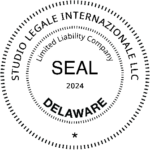I. Introduction
The transfer of presidential power is fundamental to constitutional stability and the preservation of democratic principles. An outgoing president, even in the final days of their administration, wields significant authority. However, this power is neither absolute nor unfettered. This opinion evaluates the legality and potential liability under U.S. constitutional, federal, and international law of actions by an outgoing president that intentionally undermine world peace or disrupt the foreign policy of their successor.
This analysis focuses on a case study: supplying advanced missiles to Ukraine during a presidential transition, knowing such actions could escalate conflict with Russia. Such actions must be examined against the constitutional framework, statutory obligations, international treaties, and historical precedents for post-term accountability.
II. Constitutional Limits on Presidential Powers
A. Presidential Authority under the Constitution
Article II of the U.S. Constitution empowers the president to direct foreign policy and act as Commander-in-Chief. However, these powers are bounded by:
- Separation of Powers: Congress holds the exclusive authority to declare war and regulate foreign commerce (Article I, Section 8). Actions provoking armed conflict without Congressional approval violate this principle (Youngstown Sheet & Tube Co. v. Sawyer, 343 U.S. 579 (1952).
- The Take Care Clause: The president must ensure faithful execution of laws (Article II, Section 3). Actions that contravene statutory obligations or international agreements breach this mandate.
B. Peaceful Transition of Power
The constitutional framework demands continuity and respect for the national interest during presidential transitions. Deliberately obstructing the incoming administration’s policies undermines the principle of peaceful transfer of power, foundational to U.S. democracy.
C. Violations of Domestic Rights
Actions that provoke conflict with international ramifications may disproportionately affect U.S. citizens. For example:
- Equal Protection: If certain populations, such as ethnic minorities or citizens abroad, face retaliation, this constitutes a violation of the Fifth Amendment.
- First Amendment: Suppression of dissenting voices opposing such decisions undermines free speech rights (Brandenburg v. Ohio, 395 U.S. 444 (1969).
III. Federal Statutes Governing Presidential Conduct
A. War Powers Resolution
The War Powers Resolution of 1973 limits unilateral presidential actions leading to hostilities. Supplying missiles to Ukraine with intent to escalate conflict without Congressional approval violates this statute.
B. Arms Export Control Act (AECA)
The AECA requires arms transfers to align with U.S. national security and peace objectives. Supplying arms to Ukraine, foreseeing their use to escalate hostilities, contravenes the act’s peace-oriented framework.
C. Logan Act
The Logan Act (18 U.S.C. § 953) prohibits unauthorized diplomacy. Arms transfers undermining official foreign policy may breach this statute if conducted without appropriate authorization.
IV. International Law and Treaty Obligations
A. United Nations Charter
The U.S., as a party to the U.N. Charter, is bound by:
- Article 2(4): Prohibits the use of force against the territorial integrity or political independence of another state.
- Article 51: Allows self-defence only in response to an armed attack.
Supplying offensive weapons, knowing their use might escalate conflict, violates these principles.
B. Arms Trade Treaty (ATT)
Although not ratified by the U.S., customary principles of the ATT obligate states to avoid arms transfers that:
- Exacerbate conflicts or undermine peace (Article 7).
- Breach international humanitarian law (Article 6).
C. Nuremberg Principles
The Nuremberg Principles impose individual responsibility for crimes against peace, a standard applicable to heads of state. Unlawful escalation of conflict may implicate the outgoing president under these principles.
V. Precedents of Presidential Accountability
A. Domestic Legal Precedents
- U.S. v. Nixon (1974): Affirmed that the president is not above the law.
- Clinton v. Jones (1997): Demonstrated that a sitting president can face civil liability for actions outside official duties.
B. Historical Examples
Watergate Investigation: Highlighted mechanisms for post-term accountability for abuse of power.
C. International Accountability
The International Criminal Court (ICC) or ad hoc tribunals may prosecute crimes against peace if domestic mechanisms fail. While the U.S. is not a party to the Rome Statute, customary international law recognizes such accountability.
VI. Culpability of Subordinates
A. Nuremberg Principles
Subordinates cannot evade liability by claiming they acted under orders. This principle is reflected in:
- U.S. Military Law: The Uniform Code of Military Justice obligates personnel to disobey manifestly illegal orders.
B. Federal Criminal Liability
- 18 U.S.C. § 2441 (War Crimes Act): Extends liability to those enabling war crimes.
- Hamdan v. Rumsfeld (2006): Reiterated that civilian and military actors executing unlawful policies are culpable.
VII. Evidence of Intent and Recklessness
To establish liability, evidence of mens rea (intent) or recklessness is critical. Key factors include:
- Policy Directives: Explicit instructions for escalatory actions.
- Public Statements: Comments indicating knowledge of likely consequences.
Reckless disregard for international stability meets the threshold for criminal culpability.
VIII. Remedies and Enforcement
A. Domestic Prosecution
U.S. laws, including the AECA, War Powers Resolution, and Logan Act, provide grounds for prosecution.
B. International Mechanisms
If domestic remedies fail, international tribunals such as the ICC can pursue accountability for crimes against peace.
C. Civil Litigation
Victims of escalated conflict may seek redress under the Alien Tort Statute (28 U.S.C. § 1350).
IX. Case Study: Missile Supply to Ukraine
A. Context and Risks
Supplying ATACMS missiles to Ukraine during a transition period, with knowledge of potential escalation, underscores the legal and ethical dilemmas. The outgoing president’s intent to obstruct successor policies and provoke conflict with Russia exemplifies abuses of authority.
B. Implications
- International Stability: Risks destabilizing global peace.
- U.S. Interests: Exposes citizens and assets to retaliation.
X. Conclusion
An outgoing president’s deliberate actions to undermine world peace or obstruct successor policies violate constitutional, statutory, and international law. Accountability mechanisms, both domestic and international, ensure that no individual, including a head of state, is above the law. Upholding these principles safeguards democratic integrity and global stability.
Prosecution of such actions is imperative to deter future abuses and reaffirm the rule of law. This opinion, grounded in established legal frameworks, highlights the urgent need for accountability to maintain public trust and international order.

Giovanni Di Stefano, Studio Legale Internazionale.
20 November 2024.




